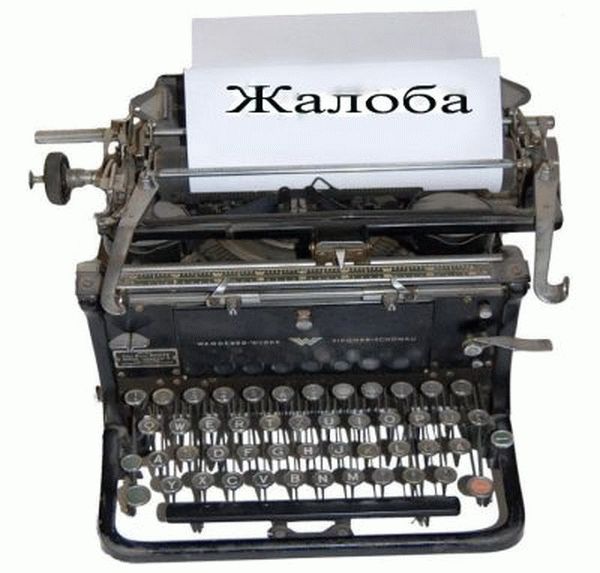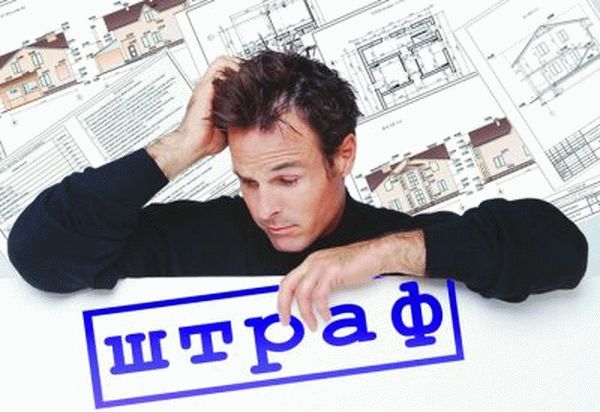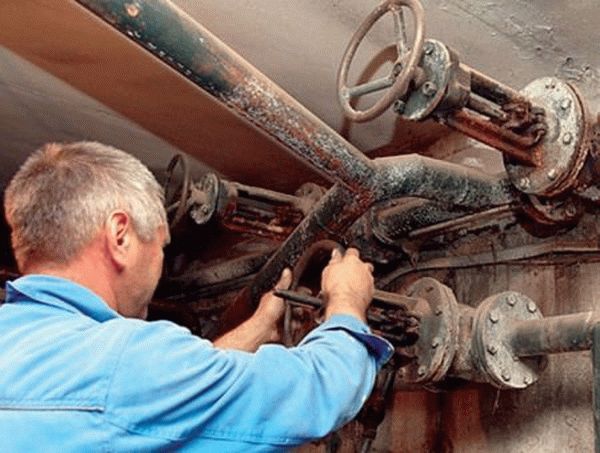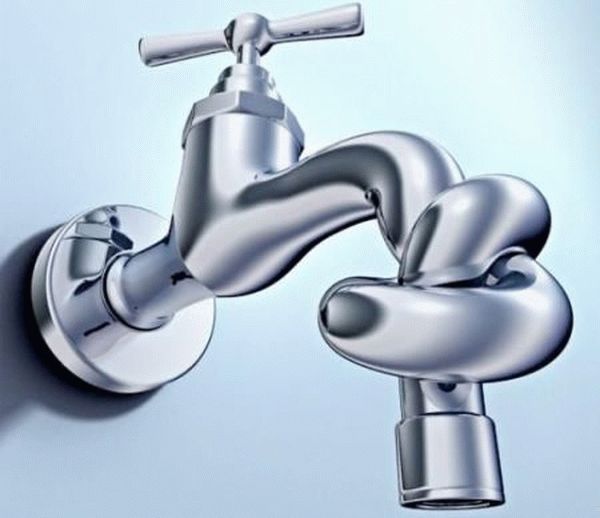Legislation
- The Civil Code of the Russian Federation regulates relations in the field of rights and contractual obligations, including on the part of public utilities.
- The Housing Code of the Russian Federation establishes quality criteria for the provision of housing and communal services.
- Decree of the Government of the Russian Federation dated May 6, 2011 No. 354 “On the provision of utility services to owners and users of residential premises in apartment buildings” contains criteria for the quality of water supply, payment procedures, and recalculation practices. Paragraph 122 prescribes what utilities must take into account when stopping the supply of hot water. Chapter 11 contains a mechanism for limiting and disabling a resource.
- SanPiN 2.1.4.2496-09 “Hygienic requirements for ensuring the safety of hot water supply systems” establishes the regulatory characteristics of water supply to an apartment building.
Is it legal to deprive water supply for debts?
The restriction of individual utilities for non-payment is regulated by Government Decree No. 354 and is legal.
Free HOTLINE:
Moscow time 8 (499) 938 6124
St. Petersburg 8 (812) 425 6761
Fed 8 (800) 350 8362
Disabling hot water, electricity, gas and intercom is possible in case of debt equal to two monthly payments.
Turning off other resources (sewage, cold water, heating) is illegal, as it creates inadequate living conditions in the apartment and can also damage the entire entrance.
IMPORTANT! Cutting off cold water supply is illegal.
The management company that turns off the debtor’s water should make sure that the following measures:
- will not damage common property;
- will not affect the provision of resources to bona fide payers;
- will not violate sanitary standards.
If these conditions are not met, turning off hot water is unacceptable.
When can hot water be turned off in an apartment?
The law defines several grounds:
- Accident or natural disaster. This is the main reason for shutdowns without warning.
- The need for scheduled repairs. If we are talking about switching off for several hours, then they must warn about this a day in advance. If about a longer period - in a few days.
- The consumer committed a crime and voluntarily connected to the water supply. For such an action, an order from an authority is required.
- It was revealed that apartment residents were using appliances whose power exceeded permissible limits. The border can be found out from the technical passport of the residential building.
- The commission established the fact of improper maintenance of pipes in residential premises. The law establishes the responsibility of owners for repairs and maintenance of communications inside the apartment. When the poor condition of the pipes threatens the supply of resources to the entire house, services turn off irresponsible owners.
- Unpaid payments.
IMPORTANT! The amount of debt for disconnection is equal to the amount of payment for two months. Moreover, it is calculated according to the consumption standard, regardless of whether DHW meters are installed or not.
Residents who, due to various life situations, could owe for the mountains. water, has the right to contact the management of the resource supplying organization to draw up a debt repayment schedule.
Utility services usually do not refuse installment plans, as this is beneficial to both parties. If the schedule is followed and the money is deposited monthly into the RSO account, no sanctions will follow.
Turning off gas for non-payment: description of the procedure, procedure and rules
restoration of supplies? The amount is determined based on the costs incurred by the supplier in connection with the suspension of supply. Connection of in-house devices is paid separately. There are no uniform tariffs for all regions. The amount of payment is set directly by the service company.
- Do not repair faults in either the equipment or the gas pipeline yourself. In such situations, it is necessary to shut off the gas supply to the devices and call specialists.
- Adequate air ventilation must be provided in areas where equipment is installed.
- The draft should be checked regularly before switching on and directly during operation of the equipment with combustion products being discharged into the chimney.
- Do not place cookware with a wide bottom on the burners of gas stoves.
- If the flame suddenly stops burning, you must immediately close all gas supply valves.
- Operating gas equipment should not be left unattended. An exception may be devices designed for continuous operation and equipped with automation.
- Small children and intoxicated persons should not be allowed near gas equipment.
- It is prohibited to use devices other than for their intended purpose. In particular, you should not heat the room using a gas stove, tie clotheslines to pipes, or dry hair or laundry over a burner flame.
- After each use of gas, it is necessary to close the supply taps.
- It is prohibited to leave flammable objects and materials (rags, paper, etc.) on the stove or at a close distance to it.
- It is prohibited to carry out independent gasification of an apartment or house, as well as reinstallation and replacement of gas appliances.
- Changes to the design of the equipment are not permitted.
- It is prohibited to redesign the premises in which the devices are installed without coordinating the project with the relevant organizations.
- It is not allowed to change the design of ventilation ducts and chimneys, or to seal or brick up hatches intended for cleaning chimneys.
- It is prohibited to turn off automatic protective systems or use gas if there is a malfunction in the equipment or automation.
- It is not allowed to use rooms containing gas appliances for rest and sleep.
- Do not use open flames to detect leaks.
Interesting read: Vehicle purchase and sale agreement 2020
Is it legal to turn it off without a court order?
The procedure for turning off water to dishonest or unscrupulous consumers of utility services without a court decision is absolutely legal. But only on strictly defined grounds listed in Government Decree No. 354 (clause 119, paragraphs a, b, c): if there is a debt in the amount of two monthly payments according to the standard and its non-payment, improper maintenance of hot water communications in the apartment, illegal connection.
Turning off cold water is unacceptable under any circumstances. This is explained by the fact that the constitutional rights of the citizen will be violated, and the sanitary well-being of the entrance or home will also be endangered.
Mitigating Factors
You can always reach an agreement with the utility service if the consumer has objective reasons for delaying payments and does not refuse to repay the debt. Mitigating circumstances will be considered:
- All able-bodied citizens registered in housing earn amounts less than the subsistence level. Then they can qualify for low-income status and take advantage of subsidies from the state. It will take on part of the rent that exceeds the maximum established by law.
IMPORTANT! The law does not have retroactive effect, that is, the subsidy will be valid from the moment of registration, but there will be no recalculation for previous accruals. The debt will have to be paid in full.
- Delay of wages at the debtor's workplace. To do this, you must submit the appropriate certificate to the RSO. Then he will be given a deferred payment and the water will not be turned off.
- Accommodation in an apartment for a minor child or a disabled person. The law prohibits shutting off the water in this case.
- Temporary difficulties with the employment of citizens, provided that they take measures to solve the problems.
- Difficult financial situation for objective reasons.
If you want to avoid punitive measures, you must pay for the service provided in part, at least once every three months.
An individual approach to the consumer in the form of deferment, installment payments, cancellation of the decision to disconnect the hot water supply is possible only on an application basis. That is, citizens must initiate communication with the management of the RSO or management company and prove the temporary nature of material difficulties, demonstrate attempts to eliminate them and a willingness to bear obligations.
Disconnection procedure in an apartment building
If payments for hot water are not received by the utility service, non-payment has accumulated in the amount of two months' payment according to the standard, and the consumer does not try to peacefully resolve the conflict, a decision may be made to turn off the hot water supply.
The management company is obliged to warn the owner about this twenty days before execution. Thus, he is given time to pay off the debt or draw up a debt payment schedule. Moreover, the debtor must be notified properly, that is, the management company must have a copy of the notification with his signature on delivery.
Shutting down without notice is prohibited except in emergency situations.
After 20 days, a hot water supply limitation mode is introduced. If the situation with the unpaid debt has not changed within 10 days, the provision of hot water supply services is terminated.
On the appointed day, a representative of the management company will come to the apartment and weld the pipe. This is possible if the owner voluntarily opens the door and lets him in. Often cunning debtors do not open the door. Then the option of blocking the riser in the basement is possible. In this way, some damage will be caused to the common property of the house, which will be recovered from the debtor through the court, among other fines and penalties.
Procedure and features of power outages for non-payment of utilities in 2020
However, it is not necessary that they come in a row. We are talking about an amount equal to twice the monthly payment. Previously, it was possible to accumulate debt by paying a small amount each month. This path is no longer available. As soon as the amount of debt exceeds a certain threshold, the management company has the right to begin restrictions.
Interesting read: Certificate of no criminal record, production time
Can the power be turned off if 10 days have passed and the debt has not been paid? Yes, but the management company is waiting another 10 days. This is the maximum possible delay. Then the master comes, switches the lever or disconnects the wire in the distribution cabinet located on a common staircase or landing, locks and seals it. In new homes, you can limit the supply of electricity remotely, using special equipment.
What to do if you were illegally disconnected
If there are no legal grounds for turning off the hot water supply, the consumer has a small debt for the month, but the water has been turned off, a number of actions must be taken to restore the supply and punish officials who exceeded their authority.
Where to complain
First, you need to try to resolve the conflict peacefully and write a complaint to the management of the management company demanding that the water supply be restored and recalculated for the period of its absence. If water is not provided, a response must be sent within 30 days and justify the disconnection. In this case, it is necessary to involve government agencies:
- The State Housing Inspectorate is a government body that monitors the work and legality of the actions of public utility services.
- Rospotrebnadzor, which supervises the fulfillment of contractual obligations by commercial organizations, including management companies, and compliance with consumer rights;
- The prosecutor's office is a government agency that initiates an audit of the activities of the Criminal Code and the actions (inactions) of government officials. It makes sense to go there only after completing the previous stages.
- Court. If other authorities have failed to solve the problem, the only option is to file a claim and go to court.
What to write
Complaints to the Criminal Code and authorities are drawn up according to the same model:
- The header indicates the full name of the manager, the name of the addressee, the details of the initiator of the complaint, and his address.
- In the main part, you need to tell in detail at what point there is no hot water, what you did to resolve the conflict and what you are trying to achieve.
- At the end there is a date of compilation and a signature.
If the hot water is turned off and you continue to receive receipts for services not provided, you need to contact the prosecutor's office.
The complaint is accompanied by a copy of the certificate of ownership of the apartment, a certificate of absence of debt for the resource, and previous correspondence.
A more effective way is to write a complaint to several authorities at once. Such a document is drawn up by writing in the upper right corner of several addressees at once: Housing Inspectorate, Rospotrebnadzor. Then each of the structures will see the active position of the applicant and will not leave the complaint unanswered.
Can water be turned off for non-payment? 2020

- name of company;
personal data of the applicant;
Attached to the complaint is a copy of the complaint sent to the Criminal Code and the response received from it.
complaints about hot water being turned off. A statement of claim is filed in court after receiving a response from the regulatory authorities. provided that the problem has not been solved or if it is possible to prove the moral damage caused by the shutdown. Such cases are within the jurisdiction of district courts, so you need to contact this organization.
The document is drawn up according to general rules and includes points:
- name of the judicial authority;
- plaintiff's details: full name, residential address, telephone number;
- details of the defendant: full name of the management company, full name of the director, legal address, telephone number;
- statement of claims. This paragraph describes the circumstances of turning off the water supply, the date of filing a claim with the Criminal Code and the content of the response. You can also describe the circumstances of contacting regulatory authorities. Your own claims must be supported by references to the violated norms of the law;
- We request that it be illegal to turn off the water supply based on current legislation.
Attached to the statement of claim are copies of the claim to the Criminal Code and the complaint to the regulatory authorities, as well as the responses received from these organizations.
The law provides for liability of suppliers for illegally turning off water:
- Administrative liability - a fine of 500 to 1,000 rubles for officials and from 5,000 to 10,000 rubles for legal entities.
This measure is applied by regulatory authorities if violations are established (Article 19.1 of the Code of Administrative Offenses).

Criminal liability is established by the court in the event of material or moral harm being caused to the owner.
If a person’s death occurs as a result of illegal actions, imprisonment is possible for up to 5 years. In addition, a ban is imposed on the right to hold leadership positions for three years. Arbitrariness is punishable by a fine of 80 thousand rubles (or in the amount of six months' salary) or forced labor for up to 200 hours.
If there are threats against the debtor, arrest for up to six months is applied. In exceptional cases, the court increases the term to 5 years (Article 330.215 of the Criminal Code).
If the disconnection is declared illegal due to lack of notification, the debtor receives a paper and is given a 30-day period to repay the debt. You will have to pay the bills anyway.
The illegally turned off water supply must be restored within three days, and payments must be recalculated.
A claim to the management company for illegal shutdown of water supply can be submitted to the responsible employee or sent to the organization by registered mail with notification. When submitted in person, the claim is drawn up in two copies . The receiving employee must sign and date the copy remaining with the applicant.
This is interesting: Power outages for non-payment: what to do, how to connect in 2020
The consumer is obliged to pay for the services provided to him in a timely manner and in the proper amount, so that the management company does not have grounds for disconnecting them. If managers exceed their authority and turn off the water illegally, it is worth calling them to account and restoring their own consumer rights.
Didn't find the answer to your question? Find out how to solve your particular legal problem - call right now:
Turning off hot water is an extreme measure that utility providers take when the owner of the premises does not pay the rent for a long time. In some cases, management companies threaten that not only hot but also cold water and even heating will be turned off. It happens that such warnings are received when the debt is only 1 month old .
How legal are the actions of management companies? In what cases should you really be afraid of turning off water for non-payment, and when is it advisable to go to court, complaining about the unlawful actions of the supplier?
The conditions for limiting the provision of utility services are regulated in a special decree of the Government of the Russian Federation No. 354 of May 6, 2011. This resolution approved the Rules for the provision of public services. They require, in particular, to turn off hot water, turn off sewerage for debtors and other communications only in the event of debt on housing and communal services for more than 3 months.
The impossibility of turning off the sewerage system is ensured by the requirements of the Housing Code - an apartment without a sewerage system does not meet the parameters of a residential premises, therefore, a citizen’s housing rights are violated.
If you want to find out how to solve your particular problem, please contact us through the online consultant form or call :
Thus, the list of disconnected utilities includes:

In order for the debtor to administer the trust, three conditions must be met:
- there will be no damage to common property;
- no restrictions will be introduced for bona fide payers;
- sanitary standards in the debtor’s apartment will not be violated.
When turning off hot water, the easiest way is to weld the pipes. However, the debtor may not allow representatives of the management company to enter, and they cannot enter by force, since the owner’s right to the inviolability of the home will be violated. In this case, suppliers usually resort to a simple but rather expensive method: inserting a special plug through a pipe in the basement into the debtor’s riser. An invoice for the transaction performed is issued to the debtor. Thus, the total amount of debt increases.
The law determines that water can be turned off without warning in two cases:
- in case of natural disasters or force majeure (for example, an accident on a heating pipeline);
- if there is a threat of an emergency (for example, a fire in a boiler room).
In all other cases, before disconnecting, the management company is obliged to notify the owners at least three days in advance. A classic example is turning off hot water during repair and maintenance work on the engineering systems of a house in the summer.
In addition, in a number of cases, the management company has the right to limit the supply of hot water, without mandatory prior notification (although usually a notification is still present):

- if the owner of the premises unauthorizedly connected to utility networks;
- if the communications in the owner’s apartment are in disrepair and there is a threat of flooding of the entire house;
- if an accident occurred due to the fault of the owner;
- if the owner made arbitrary changes to the design of communications (for example, he made a heated floor in the bathroom without
- prior approval with regulatory authorities or moved the heating radiator);
- if a corresponding order has been received from authorized bodies.
If it happens that employees of the management company or suppliers deprived the owner of the premises of hot water, heating or sewerage illegally, then you need to:
- contact the management company with a written application (refer to Resolution No. 307 of 2011 in the text) and demand
- restore water supply and recalculate for the days when the shutdown occurred;
- after three days, if the water supply has not been restored, draw up a claim and send it to the prosecutor’s office and Rospotrebnadzor;
- It is also advisable to go to court with a demand to oblige the management company to restore the water supply.
The lack of hot water in the house can be confirmed:
- using video and photos;
- testimony of witnesses - neighbors and other inhabitants of the apartment;
- by drawing up an act (for this it is advisable to invite employees of the management company, but, as practice shows, they rarely come to such “events”).
If the management company does not want to restore the water supply, you need to demand a written response from it with justification for the refusal. This paper can also be attached to the claim filed in court.
You will learn everything about major repairs and the tax on them in the article.
You will find a lot of information about the goals and process of current repairs at https://zakonometr.ru/prava/obsluzhivanije/tekushhij-remont.html link.
If you want to find out how to solve your particular problem, please contact us through the online consultant form or call :
It often happens that management companies turn off water to debtors without warning. Even if your debt is longer than due, but there was no notification, the water supply must be restored. True, after restoration, the debtor will most likely be given a warning, but he will have 20 days to repay the debt.
There are two types of liability:

- Administrative liability under the articles of the Code of the Russian Federation on Administrative Offenses “Arbitrariness” and “Violation of standards for the provision of public utilities to the population.” It provides for fines for officials up to 1,000 rubles, and for legal entities - up to 10,000 rubles. This type of responsibility is imposed on the management company and its director by the housing inspection.
- Criminal liability under the articles of the Criminal Code of the Russian Federation “Arbitrariness” and “Cessation or limitation of sources of life support.” The articles provide for serious fines for officials - up to 80,000 and 200,000 rubles, respectively, and in the presence of aggravating circumstances - imprisonment for up to 5 and up to 2 years, respectively. Criminal liability is brought to court.
The obligation to pay utility bills periodically begins to burden every owner. And due to various circumstances, some of them stop paying their bills (most often due to financial difficulties). And management companies, in turn, are trying to collect the resulting debt by all available means. This includes depriving the owner of the opportunity to use the resources provided.

Where to complain? Who should I complain to? How to complain? Russian citizens are especially frightened by going to court. You need to know your rights and be able to use them. The procedure for turning off water for a specific owner/defaulter has certain features. Failure of the Criminal Code to comply with the rules for turning off water gives the defaulter the right to protest such a decision in pre-trial and judicial proceedings.
Further in the text you will learn about the rights and responsibilities of utility companies to turn off the water supply. On the rules for complying with the procedure for disconnecting utility resources. About the rights of the owner, even if he has debt on utility bills. And about the procedure for appealing to the judicial authorities.
You can also get free advice from experienced lawyers on the website.
The answer to the question of whether water can be turned off for non-payment is contained in government decree number 354, adopted in 2011. This resolution approves the rules that management companies and owners of residential premises must adhere to in legal relations regarding the provision of utility services. According to these rules, the supplier can restrict access to utility resources if the owner is late in paying bills for their use. But no less than three months. It is strictly forbidden to disable:
Since without these utilities the apartment automatically becomes unsuitable for people to live in. And this is already a violation of the Housing Code, in particular a violation of human housing rights. Possible disabling:
- hot water;
- electricity;
- intercom buttons;
- gas for cooking.
This is interesting: DNT: what is it, decoding, advantages and disadvantages 2020
Even if the owner is a persistent defaulter, turning off water for non-payment and other utilities is impossible if:
- there is a threat of harm to the common property of the apartment complex;
- restrictions may affect owners who pay utilities on time;
- disconnection will lead to a violation of sanitary standards in the debtor’s apartment.
Before disconnecting, management company employees must follow a certain procedure, otherwise they will violate the law and may be held accountable, including through legal proceedings.
Companies that provide utility resources can limit owners' access to them for non-payment or simply temporarily disconnect them (for example, while repairing utility lines).
If the supplier decides to take measures against the defaulter in the form of turning off hot water for debts, he must notify the debtor about this in writing. Disconnection can be carried out only twenty days after the owner is notified. Confirmation is the personal signature of the debtor or a receipt of receipt of a registered letter.
Turning off water without written notice is a direct violation of Russian legislation.
How can you turn off the water in one apartment and not affect the other residents of the apartment building? The best option is to weld the pipe in the owner’s apartment. But without his permission it will be impossible to get there. And few people will voluntarily allow housing office representatives into their apartment to carry out such manipulations. You can also block the owner's riser in the basement. In this case, utility companies will suffer certain damage, which will then be recovered from the defaulter. So, if the case goes to court, this amount will also be added to the debt.
Temporary shutdown of water supply to the entire house can be carried out by the service provider without prior notification to the residents of the house in the following cases:
- emergency situations/natural disasters, when the life/health of residents of an apartment building may be in danger;
- the possibility of an emergency situation when the life/health of residents of an apartment building may be in danger (for example, a boiler room caught fire).
The water supply to a specific user can be disconnected by the service provider without prior notification to the resident in the following cases:
- unauthorized connection to a water supply source;
- finding that the water supply systems passing through the apartment of a particular owner are in faulty/emergency condition;
- provided that the owner, through his actions, created an emergency situation;
- provided that the owner has changed communication structures without obtaining special permission (including it is prohibited to install heated floors in the bathroom without approval);
- at the request of authorized structures.
All other situations of temporary shutdown of water supply require the start of work only three days after notifying the owners. For violation of these settings, you can write a complaint against the management company or file a statement of claim.

You can negotiate with the management company and get a deferment on debt payment. This will avoid turning off the hot water. You can avoid punishment for non-payment of utility bills if:
- if in total all family members earn less than the subsistence level (everything earned is divided by the number of family members and the average income of each is obtained - it should be less than the subsistence level). At the same time, each of the residents must provide an official certificate (work, stock exchange, study); those who are unofficially employed/unemployed will not receive the status of the poor (requirement of social security authorities);
- long delay in earned money - the management company must provide documentary evidence from the place of employment, which will indicate from what time the owner is not given money at work;
- the presence of minor children, disabled family members of any age, who require money for maintenance, education, treatment, may be a valid reason to cancel the water shutoff;
- temporary loss of employment;
- other reasons due to which defaulters found themselves in a difficult financial situation.
Taking these reasons into account, it is possible to obtain a deferment/installment plan for debt repayment. Or receive a one-time payment from the state to pay off utility debts. The subsidy is provided for six months. But if there are delays for utility bills more than twice in a row, the family will lose government assistance. It happens that an apartment in an apartment building is rented and the tenant must pay the rent. In this case, the debt can be collected in court, provided there is official confirmation of the agreement between the tenant and the landlord.
If hot water is turned off in your apartment for no apparent reason or for non-payment, but not according to the law, you should write complaints to various authorities and structures. First, you need to write a statement to your management company and demand the return of the water. The complainant also has the right to recalculate payment for the time when he did not use water due to the fault of the utility company. Within three days the water should return to the tap. If this does not happen, the next authorities to restore justice are the Housing Inspectorate, Rospotrebnadzor and the Prosecutor. If you really can’t stand the arbitrariness of public utilities, write a statement of claim to the court. Evidence must be attached to the claim.
The following can be used as evidence:
- photos;
- video recordings;
- witness statements (neighbors, apartment residents);
- documents indicating an attempt to resolve the problem without court intervention;
- act on the lack of water supply (provided that the management company employees agree to come to draw it up).
The debtor must miss paying at least three water bills before sanctions can be applied to him in the form of restrictions on the use of hot water. Moreover, if even one ruble is paid, the water can no longer be turned off. You can also go to court if the amounts of water payments are calculated incorrectly. Refunds of overpaid funds can only be made by court decision. An experienced lawyer will help users of our website fill out a statement of claim free of charge. To do this, simply write your question in the feedback field.
The housing inspection may punish the management company in accordance with the Civil Code:
- fine to a person holding a responsible position (for example, director) - one thousand rubles;
- in the name of a legal entity - ten thousand rubles.
Judicial authorities can involve the management company in accordance with the Criminal Code:
- fine to a person holding a responsible position (for example, director) - no more than eight ten thousand rubles;
- in the name of a legal entity - no more than two hundred thousand rubles;
- changing personal housing to government bunks for at least two years, but not more than five years - if the court recognizes the circumstances as aggravating.
The penalties are quite serious, so problems with utility services are often resolved pre-trial. But if the case does end up in court, it is better to enlist the support of a qualified specialist.
On our website you can get a free legal consultation online.
When debt on utility bills arises, each homeowner faces the prospect of losing housing and communal services. True, not all citizens know for what reason and how public utilities have the right to implement it. Therefore, it would be useful to find out whether water can be turned off for non-payment and, if so, how this is done in 2020.
First of all, it is worth understanding whether it is even legal to disconnect the basic utilities that the population receives. The conditions of this process are stipulated in RF PP No. 354. According to the letter of the law, service providers have the right to preserve them, provided that the residents of the serviced houses do not pay their rent bills for 3 months.
Next, you should find out whether the heating can be turned off for non-payment. Services that cannot be disabled include the following:
- cold water supply;
- heating (until the heating season ends).
The most common method of exposure is turning off electricity, hot water supply and closing the sewerage system.
The law allows you to turn off the water without written warning only in the following cases:
- in case of a complex accident on a heating pipeline;
- if any natural disaster occurs in the area where the network is located;
- when there is a direct threat of an emergency.
This is interesting: Garbage chute in the apartment: dismantling 2020
If the reason for turning off the water does not fall under the situations mentioned, then the service provider is obliged to notify residents of the shutdown 3 days before the planned events. Even during planned repairs.
In addition, the company has the legal right to turn off the water in the following situations:
- if residents, without receiving a permit, connected to the general water supply system on their own;
- in cases where communications inside the premises occupied by the client are in disrepair and require prompt repair or replacement;
- when, due to improper operation of the equipment, due to the negligence of persons living in the premises, an accident occurred;
- if the persons living in the apartment, without the permission of the authorized bodies, rebuilt the engineering communications inside the premises (for example, they installed a heated floor in the bathroom);
- when the owner did not apply for permission from the regulatory authorities, but moved the heating radiator without approval.
If there is an accident on the network, utility workers must shut off the water to carry out repair work. This procedure is temporary, and everything returns to its original position as soon as the problems are resolved.
If there is a leak inside the apartment, then a shut-off valve can be used for this purpose. And then water will not flow into this particular room. If damage is detected on the pipes that lead water to the apartment, then it becomes necessary to turn off the water supply at the common valve in the house. It is installed at the water meter. In such a situation, all apartments located on a particular riser find themselves without water.
It is especially important to understand how water is turned off for non-payment in one apartment. The country has Rules for the provision of public services, which were adopted more than 5 years ago, and all companies involved in this area are required to follow. This document, in particular, regulates the procedure for turning off water in residential and non-residential premises due to non-payment of outstanding payments for utility services.
If the issue does not fall under exceptional cases (for example, if there is a minor child in the family, turning off electricity, water and sewerage is prohibited), then the procedure is as follows:
- The company providing the service is obliged to send the debtor a written notice of its intention to suspend water supply due to existing non-payments. The document displays the total amount of debt and the period for which it was formed, as well as a schedule for the upcoming shutdown. The warning can be sent by registered mail, or it can be delivered personally to the homeowner against signature.
- If the debt is not repaid within 20 days, the company blocks access to hot water supply. The period begins to count from the moment the notice is delivered. If it was not delivered personally, then the date on the postmark is considered to be it.
- Employees of the supplier company seal the plumbing equipment inside the apartment, which is used to supply hot water.
In a private house, the procedure is the same as in an apartment building. If residents pay off their debt, they must submit a written application to the management company with a request to restore the disconnected service. It takes 3 business days to restore water supply. To avoid future ambiguities, it is better to draw up the application in two copies. It would be better if one of them bears the signature of an authorized person received upon filing. This is done in case the supplier does not meet the deadline for restoring the water supply and will have to file a complaint against him in court.
All debtors should know that placing and removing seals is a free procedure. Management company employees should not demand money for carrying it out. If this happens, then such manipulations are again a serious reason for going to court.
If the apartment has limited access to water supply, the owner can contact the management company with a request to restructure the debt. As a rule, management company employees are cooperative and, after making an advance payment, the water supply is restored.
The main legal issues related to the rules for the provision and refusal to supply utility services are regulated by RF PP No. 354 of 05/06/2011. According to this act, the supplier has the rights that allow him to turn off hot water to consumers. But only if there are violations of the contract between him and the client and subject to a number of procedural rules. The law prohibits depriving people of cold water.
Articles of the Code of Administrative Offenses of the Russian Federation provide for administrative liability on a point-by-point basis. And this provides for the imposition of a fine on the guilty persons. If it is an official, then the fine will be up to 1 thousand rubles. For legal entities it will be up to 10 thousand rubles.
If residents are confident that the supplier’s actions are unlawful, then they must take a number of actions to resolve the situation:
- First, you should make a claim and submit it to the management company. The form of the document is arbitrary. There are no legal requirements for it or for the form to be filled out. An approximate sample can always be found on the Internet. The application must state the reasons for your disagreement with the shutdown and demand a monetary recalculation for all days when there was no water. And if the employees of the management company do not agree to restore the water supply, then they must be required to submit a written refusal stating the reasons.
- If the utilities do not meet the three-day deadline, the homeowner has the right to file a claim with the prosecutor’s office.
- Having received a written response, you should file a claim with the court asking to restore the water supply to the apartment. It must be accompanied by copies of rent payments and a waiver from the management company.
The claim will need to be accompanied by documentary evidence of the lack of water. To obtain them, you can use photographs and videos, as well as take written statements from neighbors. You can ask the management company’s employees to draw up a report, but they rarely agree to this.
It should be noted that such a procedure is not possible for homeowners' associations. This is because payment for utility services is immediately withdrawn from all residents of the HOA from its account as a legal entity.
Often, when there is a water outage in a house, you can hear that such actions by suppliers are unlawful. In fact, determining legitimacy is quite easy. Turning off water for non-payment in an apartment building is legal only if a number of conditions are met:
- non-payment of money for water supply services must be for at least three months;
- residents are required to be notified of threatened sanctions;
- turning off water will not violate the rights of persons living in this territory, but regularly paying for services.
There is an opinion that a court decision is necessary to restrict a service. In fact, it is wrong. The supplier has the legal right not to apply to any judicial authorities to carry out shutdown measures.
All other situations, except for emergencies, in which citizens are restricted from accessing public utilities, are considered illegal.
Summarizing the information, we can give a positive answer to the question whether hot water can be turned off for non-payment. Yes, this is possible subject to a number of mandatory conditions.
What happens if you don't pay utility bills? Watch this video:
Attention! Due to recent changes in legislation, the legal information in this article may be out of date!
Our lawyer can advise you free of charge - write your question in the form below:
»
Other
Law on keeping dogs in MKD 2020
Read more
Other
Replacement of elevators under the overhaul program in an apartment building in 2020
Read more
Other
Replacement of electrical wiring in an apartment building 2020
Read more
Other
ITP - individual heating point: what is it in 2020
Read more
Great article 0







